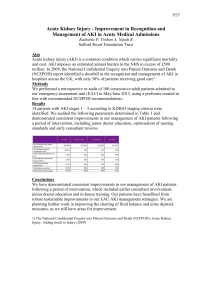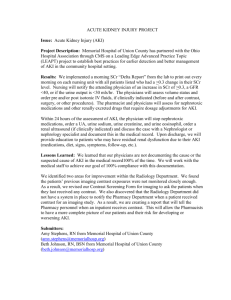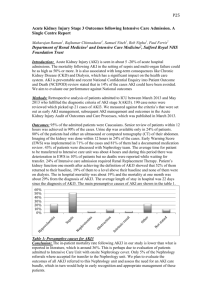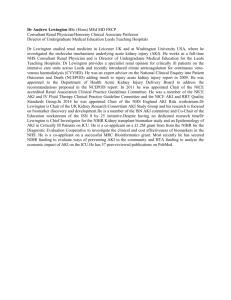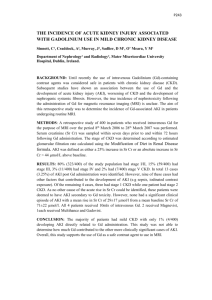Myers, Mark - Prosperity & Depression
advertisement
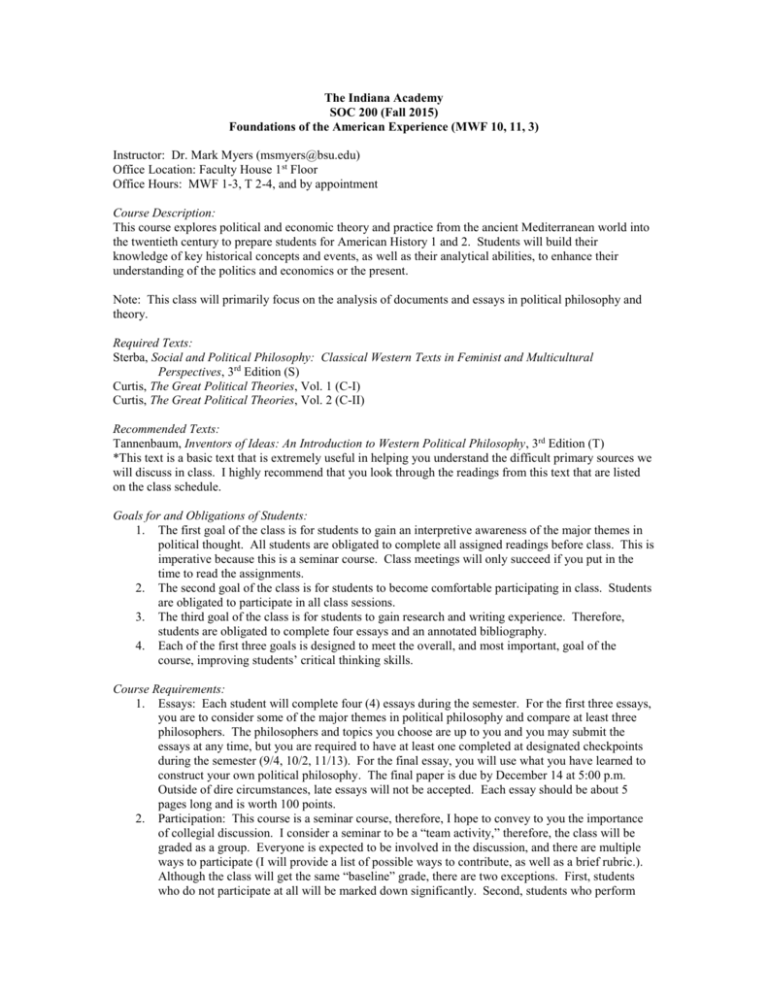
The Indiana Academy SOC 200 (Fall 2015) Foundations of the American Experience (MWF 10, 11, 3) Instructor: Dr. Mark Myers (msmyers@bsu.edu) Office Location: Faculty House 1st Floor Office Hours: MWF 1-3, T 2-4, and by appointment Course Description: This course explores political and economic theory and practice from the ancient Mediterranean world into the twentieth century to prepare students for American History 1 and 2. Students will build their knowledge of key historical concepts and events, as well as their analytical abilities, to enhance their understanding of the politics and economics or the present. Note: This class will primarily focus on the analysis of documents and essays in political philosophy and theory. Required Texts: Sterba, Social and Political Philosophy: Classical Western Texts in Feminist and Multicultural Perspectives, 3rd Edition (S) Curtis, The Great Political Theories, Vol. 1 (C-I) Curtis, The Great Political Theories, Vol. 2 (C-II) Recommended Texts: Tannenbaum, Inventors of Ideas: An Introduction to Western Political Philosophy, 3rd Edition (T) *This text is a basic text that is extremely useful in helping you understand the difficult primary sources we will discuss in class. I highly recommend that you look through the readings from this text that are listed on the class schedule. Goals for and Obligations of Students: 1. The first goal of the class is for students to gain an interpretive awareness of the major themes in political thought. All students are obligated to complete all assigned readings before class. This is imperative because this is a seminar course. Class meetings will only succeed if you put in the time to read the assignments. 2. The second goal of the class is for students to become comfortable participating in class. Students are obligated to participate in all class sessions. 3. The third goal of the class is for students to gain research and writing experience. Therefore, students are obligated to complete four essays and an annotated bibliography. 4. Each of the first three goals is designed to meet the overall, and most important, goal of the course, improving students’ critical thinking skills. Course Requirements: 1. Essays: Each student will complete four (4) essays during the semester. For the first three essays, you are to consider some of the major themes in political philosophy and compare at least three philosophers. The philosophers and topics you choose are up to you and you may submit the essays at any time, but you are required to have at least one completed at designated checkpoints during the semester (9/4, 10/2, 11/13). For the final essay, you will use what you have learned to construct your own political philosophy. The final paper is due by December 14 at 5:00 p.m. Outside of dire circumstances, late essays will not be accepted. Each essay should be about 5 pages long and is worth 100 points. 2. Participation: This course is a seminar course, therefore, I hope to convey to you the importance of collegial discussion. I consider a seminar to be a “team activity,” therefore, the class will be graded as a group. Everyone is expected to be involved in the discussion, and there are multiple ways to participate (I will provide a list of possible ways to contribute, as well as a brief rubric.). Although the class will get the same “baseline” grade, there are two exceptions. First, students who do not participate at all will be marked down significantly. Second, students who perform 3. exceptional group-benefit feats, such as “saving” a discussion that is struggling, will be eligible for extra points. Each day of discussion will be worth 10 points. Annotated Bibliography: Each student will choose one topic or philosopher and conduct extra research. There will be two steps to this assignment. First, each student will prepare a 1-page proposal. This will require some preliminary research. The student will discuss their topic in general and why this would be an important topic to explore. The proposal is due on Friday, September 11 and is worth 100 points. Once a topic is chose, the student will research some of the secondary literature on the topic (books and journal articles), choosing at least 5 sources. The student will then submit an annotated bibliography of the chose sources. The annotated bibliography is due by Friday, October 30 and is worth 50 points. Grade Distribution (Percentage of Total Points Earned): A: 90-100 B: 80-89 C: 70-79 D*: Below 70 Assignments: All assignments must be typed in a reasonable font and submitted in hard copy. In most cases, late papers will not be accepted without prior discussion. If accepted, late papers will accrue a penalty of one letter grade for every calendar day late. Academic Dishonesty: Academic dishonesty will not be tolerated and will be subject to the Academy’s policies on academic dishonesty. For a full discussion of this process and possible sanctions, please refer to the student handbook. Behavior: This class is expected to be a positive learning experience based on open communication and respect. You are expected to be collegial and to respect the rights of the other seminar participants. On that note, I expect you to be engaged with the class conversation, with no side conversations, sleeping, or playing on you cell phones. Doing so can lead to a lowering of your participation grade for the day. Continued disruptive activity can lead to removal from class (which would be an unexcused absence) and the sending of an APR. Computers: There should be no time when computers will be needed, therefore all computers must be closed during the seminars. Blackboard: As time permits, I will post interesting things on Blackboard. You should check this out regularly. Disclaimer: I reserve the right to make changes to this syllabus at my discretion. I will give notice to the class as soon as possible after making any change. Academic Calendar: 8/10 Classes Begin 9/5-8 Extended Break 10/2 Quarter 1 Ends 10/9 Conference Day 10/10-13 Extended Break 10/14 PSAT 11/21-29 Extended Break 12/14-17 Finals Week Course Calendar: Week 1: 8/10 8/12 8/14 Recommended Reading: (T) Ch. 2 Introduction to the Course Plato: (S) 4-32 Plato & Confucius: (S) 33-45 8/17 8/19 8/21 Recommended Reading: (T) Ch. 3 Aristotle: (S) 46-67 Rufus, Aristotle, & Ewe Proverbs: (S) 68-83 Stoicism: (C-I) 102-119 8/24 8/26 8/28 Recommended Reading: (T) Ch. 4 & 5 Rome: (C-I) 120-139 Augustine: (S) 85-103 Medieval Life & Thought: (C-I) 157-174 8/31 9/2 9/4 Recommended Reading: (T) Ch. 6 & 8 Aquinas: (S) 104-125 de Gournay & Maimonides: (S) 125-138 The Renaissance: (C-I) 215-233 9/7 9/9 9/11 Recommended Reading: (T) Ch. 7 Extended: No Class The Reformation: (C-I) 215-233 The Right of Resistance: (C-I) 263-287 9/14 9/16 9/18 Recommended Reading: (T) Ch. 9 Suarez & Bellarmine: (C-I) 287-300 Sovereignty & Divine Right: (C-I) 301-325 Hobbes: (S) 139-167 9/21 9/23 9/25 Recommended Reading: (T) Ch. 10 Pateman & Las Casas: (S) 167-183 Spinoza et. al: (C-I) 350-372 Locke: (S) 184-207 9/28 9/30 10/2 Clark & Tecumseh: (S) 207-223 Vico & Hume: (C-I) 412-440 French Thought: (C-I) 412-440 10/5 10/7 10/9 Recommended Reading: (T) Ch. 11 & 12 Rousseau: (S) 225-250 Wollstonecraft & Churchill: (S) 263-285 Kant: (S) 287-316 10/12 10/14 10/16 Recommended Reading: (T) Ch. 13 Extended: No Class PSAT/TBA Revolution & Counterrevolution: (C-II) 48-75 10/19 10/21 10/23 Recommended Reading: (T) Ch. 14 Romanticism & Idealism: (C-II) 76-104 Mill: (S) 318-339 Mill on Women, Taylor, Mao Tzu: (S) 340-371 Week 2: Week 3: Week 4: Week 5: Week 6: Week 7: Week 8: Week 9: Week 10: Week 11: Week 12: Recommended Reading: (T) Ch. 15 10/26 Early Socialism & Positivism: (C-II) 130-154 10/28 Marx & Engels: (S) 372-392 10/30 Hartmann & Schumacher: (S) 392-408 Week 13: 11/2 11/4 11/6 Classical Liberalism & Aristocratic Conservatism: (C-II) 181-186, 204-233 Nationalism: (C-II) 234-253 Social Darwinism, History, Neo-Idealism: (C-II) 254-284 Week 14: 11/9 11/11 11/13 Irrationalism & Psychology: (C-II) 285-319 Rawls & Hospers: (S) 409-437 Okin & Mawdudi: (S) 438-457 Week 15: 11/16 11/18 11/20 Habermas & Foucault: (S) 459-477 Bartley & West: (S) 477-497 MacIntyre & Taylor: (S) 499-520 Week 16: 11/30 12/2 12/4 Friedman & Nordberg-Hodge: (S) 520-537 West & Nussbaum: (S) Wrap-Up: What Does This Mean? Week 17: 12/7 12/9 12/11 Projects Projects Projects
